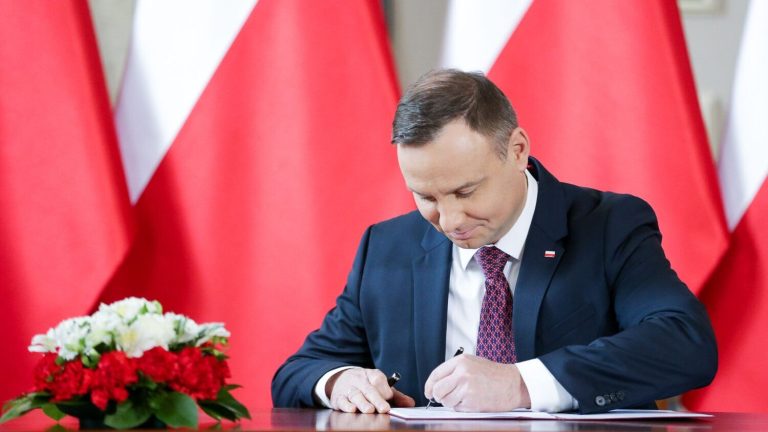Prostate cancer: how to treat patients according to clinical indications?

Prostate cancer is the most common malignant tumor affecting men. If diagnosed at an early stage, the patient's chances of recovery are very high. However, nearly 25 percent patients already have metastases at the time of diagnosis, which means they are no longer eligible for surgical removal of the tumor or the so-called radical radiotherapy. They need modern drugs that will make them live longer and better with cancer.
Every year in Poland 18 thousand men are diagnosed with prostate cancer. Data from the National Cancer Registry show that in 2021 (the latest available data) it accounted for 21.2%. all cases of malignant tumors in men in Poland and was the cause of 10.8%. deaths. Prostate cancer is a cancer that is characterized by a significant increase in both incidence and mortality, and Poland, as specialists point out, is the only country in the European Union where the standardized mortality rate for prostate cancer is increasing (by 18%). .
Access to diagnostics and modern treatment increases the patient's chances of recovery
Quick access to modern diagnostics and early diagnosis play a huge role in the case of every oncological disease. In a patient with prostate cancer, time affects the prognosis and determines the effects of treatment. If you want to outsmart this disease, you need to be examined and respond to all disturbing signals.
It would certainly be a great convenience for men to be able to make an appointment with a urologist without a referral, which has been requested by patient organizations for a long time.
“The need to obtain a referral from a primary care physician is a huge inconvenience for us, which can and often does result in a delay in making the diagnosis and starting treatment, if there are indications for it.” – says Zbigniew Augustynekchairman of the Prostate Section of the “UroConti” Association.
Prof. Tomasz Drewa, president of the Polish Urological Society, head of the Department and Clinic of Urology and Andrology, Collegium Medicum in Bydgoszcz, Nicolaus Copernicus University, working at the University Hospital. Antoni Jurasz in Bydgoszcz, confirms: referral to a urologist is a barrier to better care for patients with prostate cancer.
“Today, in order for a patient to see a urologist, he or she must go through a family doctor's office. It is true that, theoretically, patients who would like to be examined for prostate cancer may potentially have the option of visiting an oncologist without having to obtain a referral from their family doctor. However, we must honestly admit that the availability of visits to oncologists and places where such screening consultations are conducted is many times lower than the availability and number of urological clinics. As a result, the potential of urological clinics is not fully utilized.” – says prof. Tomasz Drewa.
Robots in operating rooms
In a patient who does not have metastases, the tumor can be removed using various forms of radiation (radiotherapy) or surgically – using the classic method or laparoscopically. More and more radical prostatectomy procedures are performed with the assistance of surgical robots. From April 1, 2022, such procedures are financed from public funds, and as a result, the number of centers equipped with robots is increasing. In urology, these modern devices supporting the operator's work are most often used, although the number of robotic procedures in gynecological oncology and colorectal surgery is also growing (from August 1, 2023, the indications for reimbursement of oncological robotics were extended to include cancer of the uterine mucosa and large intestine).
“Currently, there are over 40 hospitals in Poland equipped with surgical robots and their number is growing dynamically. (…) Just like pharmacy robots in hospital pharmacies, surgical robots will replace laparoscopic tools in the next few years and dominate minimally invasive surgery, giving it a new dimension. This is a global process that cannot be stopped.” – predicts in the report “Robotic Surgery”, published in 2023 by the Modern Healthcare Institute, Dr. Hab. n. med. Artur Antoniewiczhead of the Department of Urology and Urological Oncology of the Międzyleski Specialist Hospital.
However, surgical treatment is not a method that a doctor will recommend to a patient with advanced prostate cancer. Such a patient requires pharmacological treatment – modern drugs, thanks to which prostate cancer will turn into a chronic disease.
Better access to modern medicines
According to clinical oncologist, MD. Iwona Skoneczna, head of the Chemotherapy Department at the Grochowski Hospital in Warsaw, specializing in, among others, in the treatment of prostate cancer, the availability of modern therapies in Poland has significantly improved in recent years. In March 2022, patients requiring hormonal treatment to lower PSA levels and who do not yet have metastases gained access to three new hormonal drugs: apalutamide, darolutamide and enzalutamide. In 2023, the Ministry of Health provided patients with advanced prostate cancer with access to further new therapies for patients with hormone-sensitive prostate cancer. In patients with metastatic disease, hormonal drugs may be added to chemotherapy to enhance the treatment effect of the aggressive form of the disease, and in patients who do not qualify for chemotherapy, hormonal drugs may be used alone.
“We have gained the possibility of treatment with two drugs that were not available at all until now. In the case of men with prostate cancer with a BRCA1 or BRCA2 mutation, we have the option of targeted treatment with olaparib after using new generation drugs. We also have access to second-line chemotherapy, which we have been waiting for over 10 years.” – underlines Dr Iwona Skoneczna. He adds that this brings us closer to world-class treatment and means that many patients will live longer and in better shape, and more and more oncology centers will be able to provide comprehensive care.
Answering the question whether patients, especially those with advanced prostate cancer, have similar access to modern therapies as patients in other European Union countries, prof. Tomasz Drewa replies: “Access to treatment in Poland is slightly worse compared to other EU countries, but has improved significantly over the past 2-3 years. Currently, the problem is not modern treatment of patients with advanced prostate cancer, but rather meeting all stringent criteria, including time criteria.
However, European statistics show that the 5-year survival rate for patients with prostate cancer in Poland is still only 65.2%, while for all European Union countries it is as much as 20 percentage points higher. As a result, we are the only EU country where the most important epidemiological indicators in prostate cancer are not improving. What's worse, in recent years Poland has been the country with the highest dynamics of increase in mortality from prostate cancer in the entire EU.
Do patients with advanced prostate cancer have anything to fear?
Patients appreciate all the changes so far and are very grateful to the Ministry of Health for including all treatment options in the drug program in force last year, which resulted in changing its name (instead of “B.56. Treatment of patients with castration-resistant prostate cancer” it is now “B.56. Treatment of patients with prostate cancer”). However, they are worried that as of November 1, 2023, as a result of updating the list of reimbursed drugs, a modern drug for patients with advanced castration-resistant prostate cancer – radium-223 dichloride – has been withdrawn from the program. They fear that the same fate may befall them from April 1 this year. two other medicines used for this indication.
“Keeping in mind the situation from November, we are afraid that during the upcoming update of the reimbursement list, taking into account that two preparations called enzalutamide and darolutamide are ending their reimbursement contracts, the Minister of Health will decide on further restrictions on access to modern treatment.” – says Zbigniew Augustynek.
When asked whether there really was such a risk, prof. Tomasz Drewa says there is no precise information on this subject. “However, I have the impression that the Ministry of Health does not want no reimbursement for treatment. Rather, it adopts a strategy of perhaps excessive inclusion criteria that must be maintained. If a drug is “dropped” from the list, it must be remembered that patients in the programs must continue treatment, and there are a large number of those taking enzalutamide, so such a move will not change much for now. It would certainly limit access to other patients.” – says the president of the Polish Urological Society.
But patients point out one more problem: the lack of transparency in the drug reimbursement process for patients with hormone-dependent prostate cancer before the emergence of castration resistance. This process, as they emphasize, ended with only one of three modern drugs being included in the drug program. In addition, the very restrictive provisions of the program mean that only about 100 patients benefit from it. The vast majority receive older and cheaper abiraterone, which is available as part of the catalog of chemotherapy drugs.
“If a patient starts therapy with this drug, he or she cannot switch to another, more modern one, because there is still a ban on sequential treatment in Poland.” – explains Zbigniew Augustynek.
Prof. Tomasz Drewa confirms that there is a ban on sequential treatment, but – as he emphasizes – sequentiality is not fully recognized. “We know that the response to the second line of ARI drugs is definitely worse than to the first one. But it is true that such availability would be beneficial for patients, although each case should be considered individually. “Medicine is still the art of treatment, not just EBM recommendations.” – says.
At the same time, it draws attention to problems with the treatment of patients with hormone-sensitive prostate cancer with a large number of metastases, who can only receive androgen deprivation therapy (ADT) + docetaxel (DCTX). “However, the question is whether such patients will not benefit more from ADT+DCTX treatment than from apalutamide alone. The literature data are ambiguous on this issue” – says prof. Tomasz Drewa.
Personalization of treatment for patients with hormone-sensitive prostate cancer is very limited. Wider access to new therapies would allow for more effective treatment selection, taking into account, among others: safety profiles of individual drugs. This is very important due to the common problem of multimorbidity in this group of people.
January 25 this year The Association of People with NTM “UroConti” sent a letter to the Minister of Health Izabela Leszczyna a letter in which he describes the problems faced by patients with diseases of the urogenital system in Poland. It also mentions the reservations of the association's members regarding the current preparation and form of consultations on drug programs. “Lack of transparency, hiding details until the project is published, setting criteria for incompatible programs international medical guidelines and basing them on short-term economic rather than medical goals are of deep concern to us.” – they wrote in a letter to the new head of the Ministry of Health. And they shared with her their concerns that since one of the drugs in the “Treatment of prostate cancer patients” program was unexpectedly withdrawn from reimbursement as of October 31, 2023, other drugs may also be withdrawn, especially since in March this year. their reimbursement contracts are running out.
“As an organization associating patients, we will constantly emphasize that doctors and patients should have a guaranteed opportunity to select optimal forms of therapy, and this access should be constantly expanded, not limited. It is the doctor who should decide on the most optimal form of therapy, not the Minister of Health, whose task, in turn, should be to create the best possible conditions for its implementation. – they emphasized.






